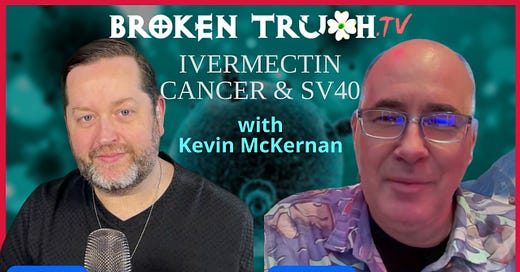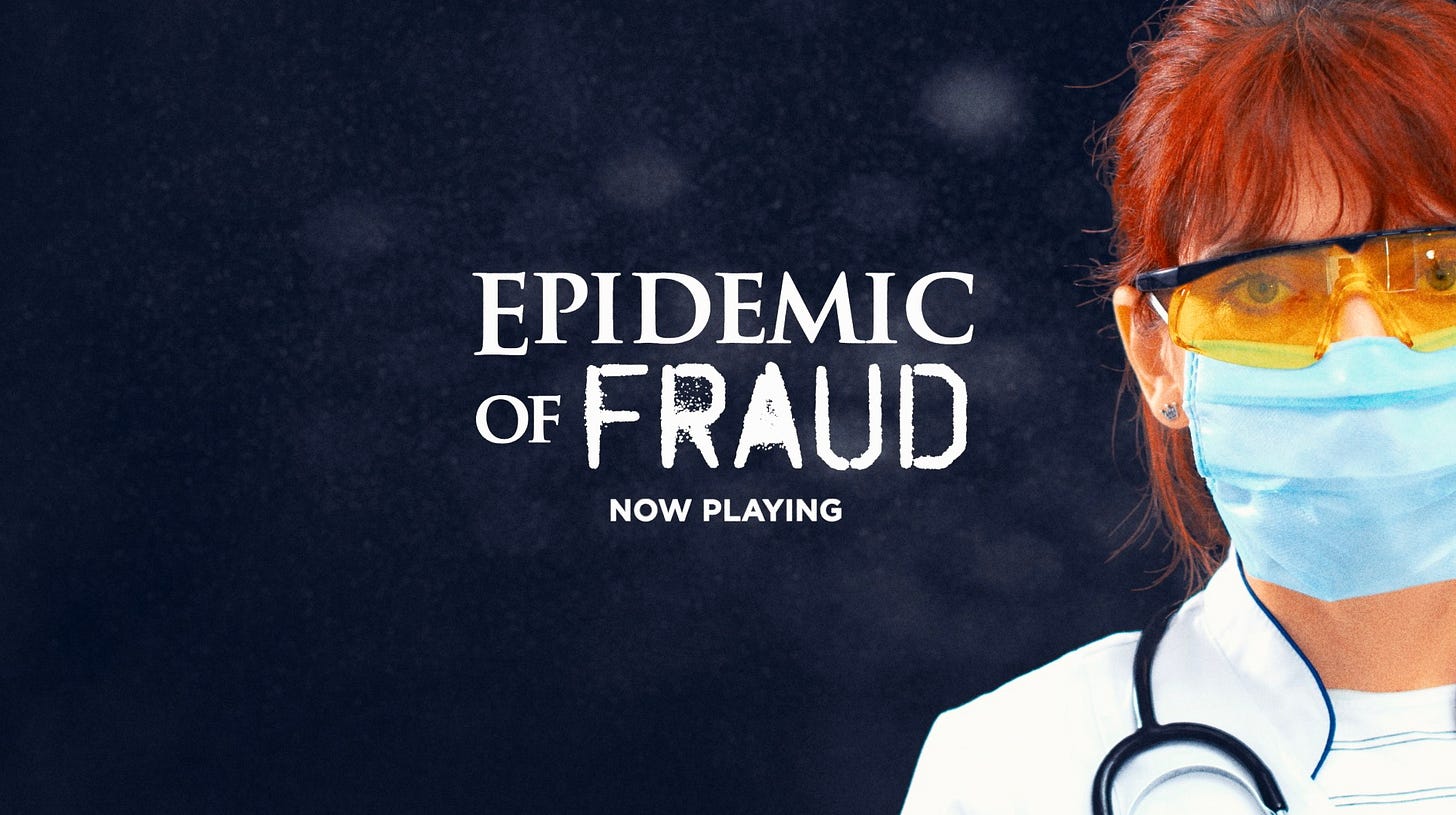In a recent episode of "Broken Truth," host John Davidson delved into the implications of the Simian Virus 40 (SV40) with guest Kevin McKernan, who has significant expertise in genomics. The discussion shed light on SV40's historical presence in polio vaccines and its possible role in contemporary health issues.
Historical Context of SV40:
McKernan explained that SV40, a monkey virus, was inadvertently included in polio vaccines during the late 1950s and early 1960s due to the use of monkey kidney cells for vaccine production. This virus has been linked to cancer in animal models, stirring concerns about its impact on human health.
Learn about the dark history of SV40 in weapons research in our interview with Judyth Vary Baker here.
Recent Discoveries:
The conversation pivoted to recent findings by McKernan, who, while examining Pfizer's vaccines, discovered undisclosed components of SV40 DNA. This revelation has sparked debates about the safety and transparency of vaccine manufacturing. McKernan highlighted that while the complete SV40 virus isn't present, certain viral components like the promoter and enhancer sequences could have significant biological effects, including potential oncogenic properties.
Rising Cancer Rates:
McKernan pointed out an observed increase in cancer rates, particularly among younger demographics, which he suggests might be connected to these SV40 components. He referenced various data sources:
Death Records: John Boudwin's work on death records from several states shows an uptick in cancer-related deaths post-vaccination.
Insurance Data: Ed Dowd's analysis of insurance claims supports the notion of increased cancer incidences.
Pharmaceutical Acquisitions: Major pharmaceutical companies are aggressively acquiring cancer treatment companies, suggesting an anticipated rise in demand.
Therapeutic Approaches:
The interview also explored potential treatments like ivermectin and fenbendazole, which have shown anecdotal success in managing these "turbo cancers." Ivermectin, notably smeared in public discourse, has mechanisms that could counteract the effects of SV40 by inhibiting nuclear import proteins, potentially preventing DNA integration into the cell nucleus.
The drug’s cancer potential recently went viral after Mel Gibson discussed how several of his friends had been cured of cancer by using the medication.
Challenges and Misinformation:
McKernan discussed the challenges in disseminating this information, including smear campaigns against researchers and the suppression of alternative treatments by mainstream medical bodies. He criticized platforms like PubPeer for what he perceives as biased scrutiny of research that challenges pharmaceutical narratives.
Future Directions:
McKernan, with his background in genomics from his time on the Human Genome Project, emphasized the need for more decentralized research and medical practices. He highlighted his ongoing work with Medicinal Genomics, aimed at applying genomic tools to cannabis for medical use, advocating for a similar approach to other generic drugs like ivermectin to bypass centralized pharmaceutical control.
Conclusion:
The episode with Kevin McKernan on John Davidson's "Broken Truth" serves as a cautionary tale about the complexities of vaccine safety, the potential unintended consequences of medical interventions, and the ongoing battle for medical freedom and transparency in research. McKernan's insights invite further scrutiny and discussion on how to manage health in a world where new diseases and treatments are constantly emerging, often with unclear long-term effects.
See how we brought up SV40 in the Polio Vaccine to acting head of the FDA Janet Woodcock in December 2021 by watching our movie ‘Epidemic of Fraud’ now.
Research cited by Kevin in this interview:
Thorn et al
The journey of a lifetime - development of Pfizer's COVID-19 vaccine
Lim et al.
High spontaneous integration rates of end-modified linear DNAs upon mammalian cell transfection
Kwon et al
The Cytosolic DNA-Sensing cGAS-STING Pathway in Cancer
Drayman et al
p53 elevation in human cells halt SV40 infection by inhibiting T-ag expression
Dean et al
Sequence requirements for plasmid nuclear import
Senigl et al
Hematologic Cancer after Gene Therapy for Cerebral Adrenoleukodystrophy














Share this post